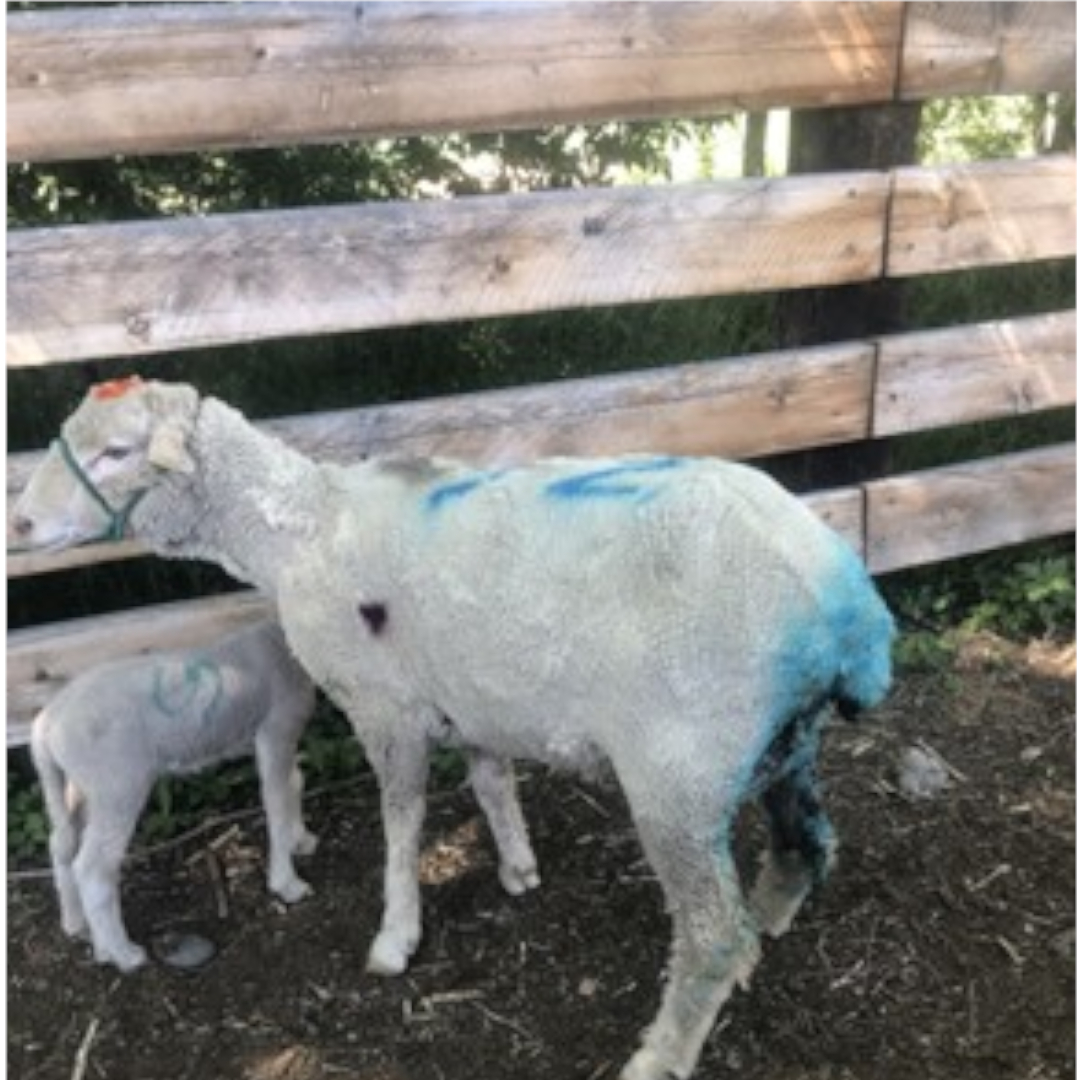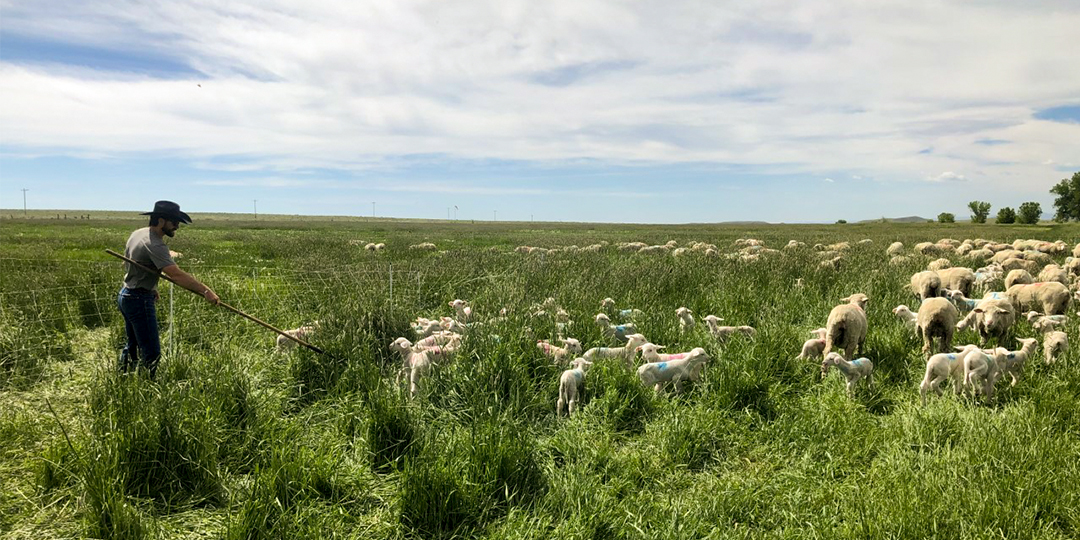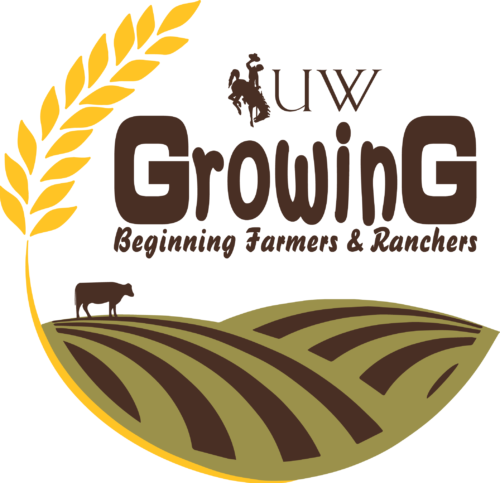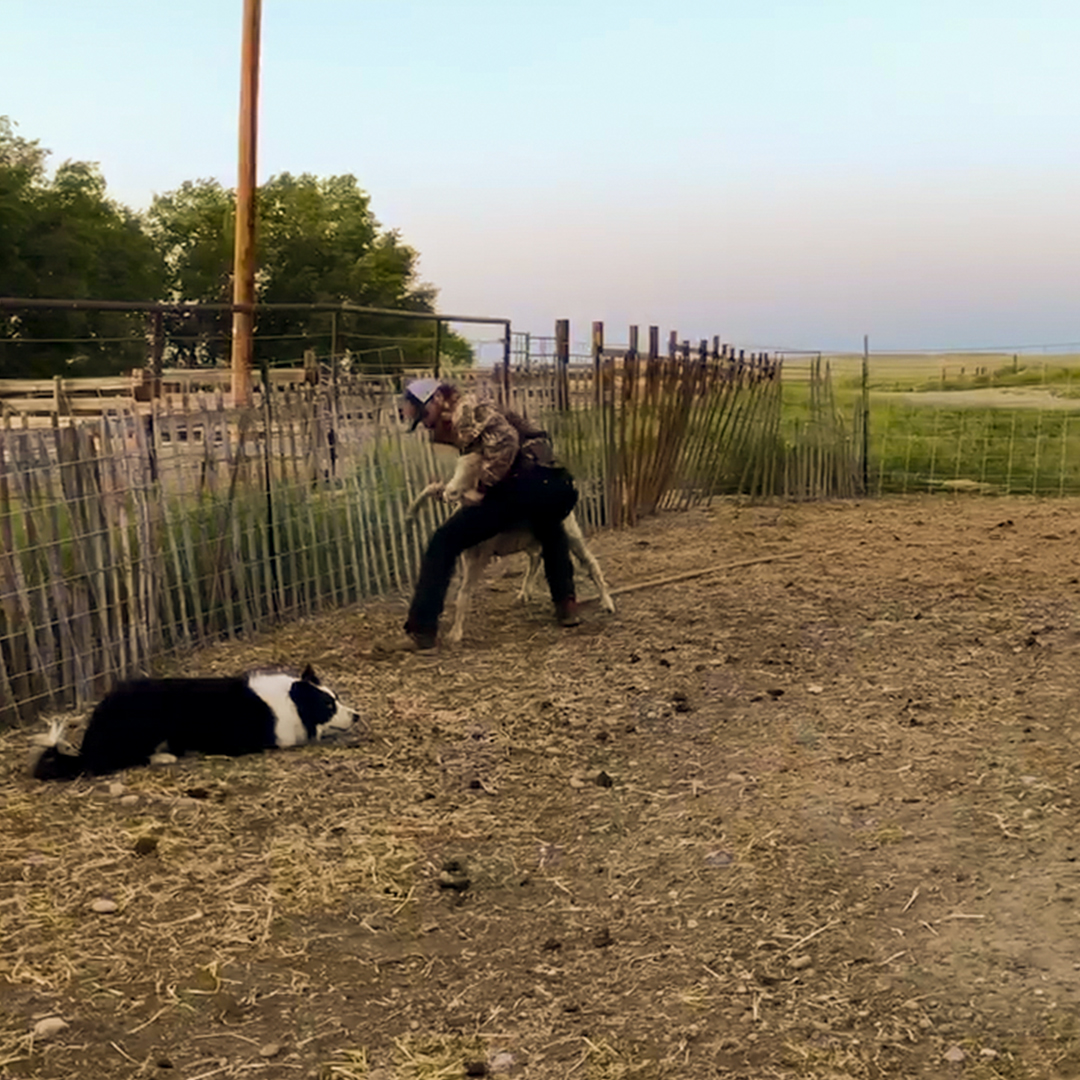Irrigation and Lambing

#bfrdpwy #aginternship #RightRisk
Over the second week of the GrowinG-WY internship I have started to get a better grasp of the basics of lambing as well as irrigation. Adding onto the recent topics I have started to learn (irrigation and lambing), I have begun to understand additional subjects of sheep farming such as parasitism.
Parasitism in sheep, if left un[treated]scathed, can be detrimental to, not on[ly] the specific sheep infected, but to the flock [as well]. Since the sheep in the flock stay relatively close to one in another, they can transmit the parasite from one host to another due to the constant interaction while feeding and drinking.
As the sheep defecate the eggs of the worms are passed via the fecal matter and young lambs as well as adult sheep feed on resources around the feces, this can cause transmission of the parasite into a new host. It’s important to feed sheep the proper nutrients in order [to] better help the host gain enough energy to sustain its overall health. Making sure to deworm with proper nutrition can dramatically change the health of the sheep. Using corn can help to build up the bacteria interior to the rumen, which in turn will help the overall nutrition gained from other feeds such as alfalfa.

This past week we have been really paying attention to the body of the sheep, specifically ewes that look sucked in, have floppy ears, bleached interior eye lids and bleached vulva. These are all indicators [of] anemia, which can occur when worms are taking the nutrients from the host, making it unable to proper feed itself to sustain quality life. Once we target a ewe with these feature, we use sheep hooks to hook the mid portion of their legs, not too low because the risk of ankle injury and not too high because you don’t want to damage the udder. [R]ight above the tarsal bone, which is above the inverted knee-like part of the leg. Once hooked, we use drencher to apply the wormer orally.
Another thing that we have been on the look out for is fly strike. With the warmer weather the botflies are out and about looking for a host to lay their eggs. It is important to pay attention to any lamb or ewe who has a wound that could emit blood or if it shows any sign of exterior infection. We have had one ewe so far that has showed initial signs of possibly botfly infection, so we sheered the wool around the potential site and spray fly repellent all around the area.
Parasitism is a tricky part of the agricultural business, as it can be detrimental if not caught at the early stages. But if caught early and the correct approach is taken, you can stop the parasite in its tracks, making it unable to lay or pass on through other livestock.
I have asked some questions about other ways to supplement sheep that have worms and, as stated earlier, have found that corn can boost the bacteria in the rumen, which in turn will help the net gain of energy absorbed from other feeds. This is extremely important, as it can help get more nutrients to the sheep that is being drained of vital nutrients via milk production and parasitism.
Some other questions I would have about parasitism is what other rarer parasites might infect sheep or even other livestock in general, as well as other crucial signs of infection that [managers need]are needed to know [in order] to start medication and aid immediately.
As this second week comes to an end, I can’t express the amount I have already learned. As stated in my first blog post, my plan is to pass on this important information to my friends and family back home who run livestock to better enable them to have healthy and productive goats and cattle.
Like I indicated earlier in this post, parasitism can be a much smoother process if caught in the early stages and ensure better production for the years to come. Since I intend to run sheep on my own one day, I also plan to use the same methods we have used this past week to properly diet and medicate my own livestock, but I can even use the same signs that are expressed by the sheep to observe parasitism in other animals such as my dogs.
Parasitism might not seem like a big deal from the outside but if you own livestock and mess around it can wreak havoc on your farm, thus it is important to understand.
Submitted by: Elijah Richardson
Edits by: GrowinG Internship Team


